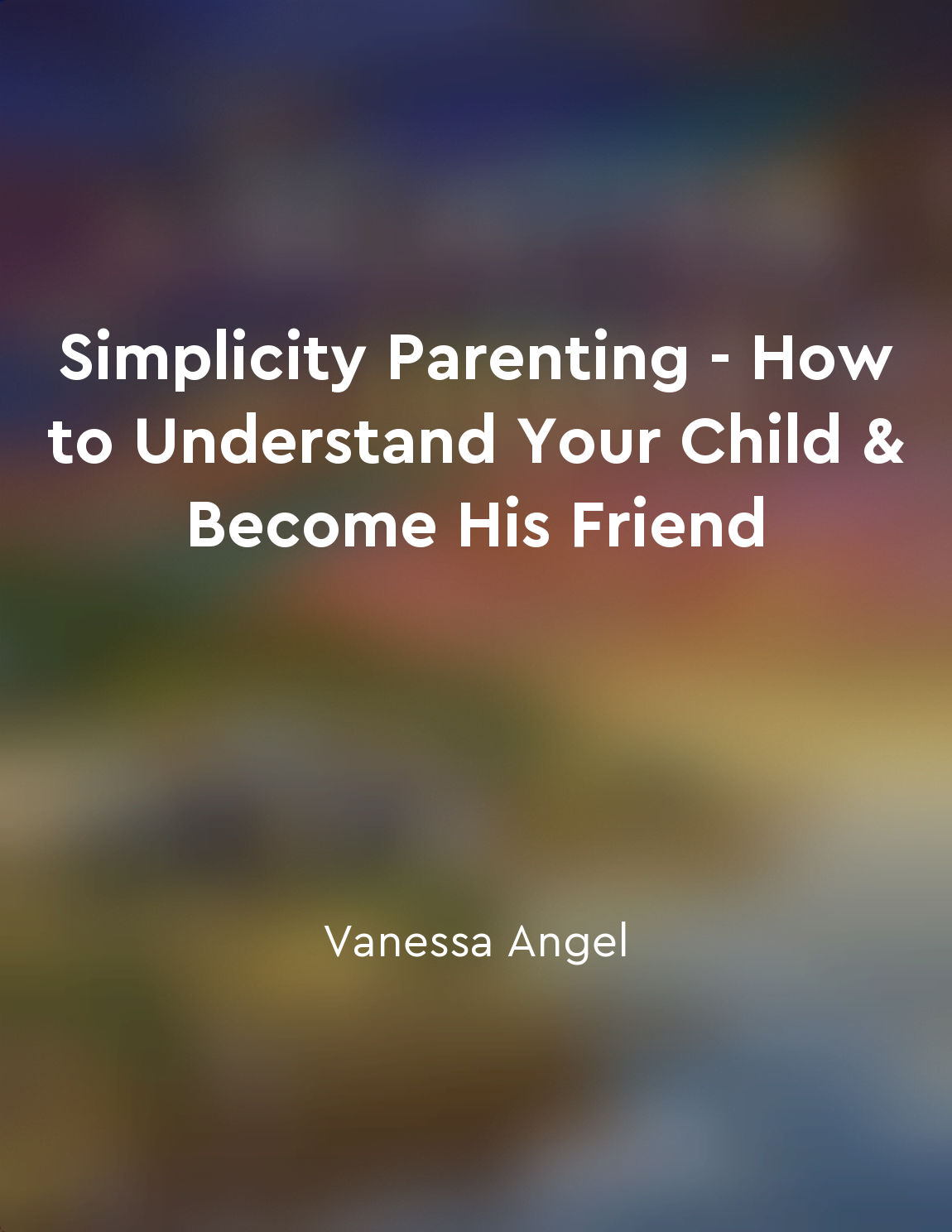Audio available in app
Be present and attentive from "summary" of Simplicity Parenting - How to Understand Your Child & Become His Friend by Vanessa Angel
Being present and attentive is a fundamental concept in building a strong relationship with your child. It means giving your child your full and undivided attention when they are talking to you or expressing themselves in any way. This involves putting aside distractions such as phones, computers, or other tasks, and truly focusing on what your child is saying. When you are present and attentive, you are showing your child that you value and respect their thoughts and feelings. This can help to build trust and open lines of communication between you and your child. By being fully present in the moment, you are creating a safe space for your child to express themselves without fear of judgment or interruption. Being present and attentive also allows you to pick up on subtle cues and signals from your child that may indicate how they are feeling or what they may need from you. By paying close attention to your child's body language, tone of voice, and overall demeanor, you can better understand their emotions and respond in a supportive and empathetic manner. In today's fast-paced and technology-driven world, it can be easy to become distracted and disconnected from our children. By making a conscious effort to be present and attentive, you are showing your child that they are a priority in your life. This can help to strengthen your bond and create a sense of security and stability for your child.- Being present and attentive is a simple yet powerful way to connect with your child on a deeper level. By giving them your full attention and listening with an open heart and mind, you are laying the foundation for a strong and meaningful relationship built on trust, respect, and understanding.
Similar Posts

Promote selfregulation and emotional intelligence
One of the most important skills we can teach our children is the ability to regulate their own emotions and behavior. When chi...

Remain calm and composed in challenging situations
When things get tough, it's easy to let our emotions get the best of us. We start to feel overwhelmed, anxious, and unsure of h...
Reflective listening involves mirroring the speaker's emotions and thoughts
Reflective listening is a powerful tool that involves not just hearing the words spoken by the speaker, but also understanding ...
Understanding one's own desires and needs is crucial in experiencing pleasure
To truly experience pleasure in life, one must first understand their own desires and needs. This is a fundamental aspect of th...
Discipline is about teaching, not punishing
When we think about discipline, we often associate it with punishment. But what if we shifted our perspective and viewed discip...
Avoid making assumptions
The danger of assuming is that it can lead you down the wrong path. When you assume, you are essentially making a guess without...
Set clear expectations and consequences
When dealing with young children, it is crucial to establish clear expectations and consequences. Children thrive when they kno...
Resolving conflicts requires patience and understanding
When conflicts arise, it can be all too easy to become frustrated and impatient. Our natural instinct may be to quickly resolve...
Offer practical life activities for skillbuilding
Practical life activities are a cornerstone of the Montessori approach, providing children with the opportunity to develop esse...
Body language conveys messages in communication
Body language is a crucial aspect of communication that often goes unnoticed. It involves the gestures, facial expressions, and...


